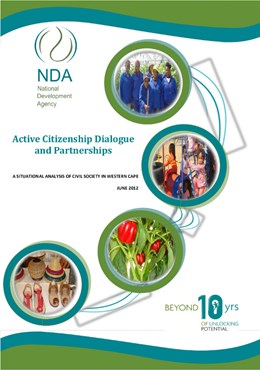Active Citizenship, Dialogue And Partnerships
The Western Cape has a rich tapestry of associational life that straddles business associations, labour unions, community based organisations, NGOs, FBOs and social movements. It tended to represent the specific interest of citizens as reflected by its organisational forms. Some were membership based while other provided specific services with governance structures that are not necessarily mass based. The co-ordination of interest to enhance collective action within and across sectors was critical dimensions of the organisational forms that emerged. It is in this sense that the local chapters of organisations were affiliated to provincial and nation-wide organisations.
While labour unions and business associations has developed strong membership based organisations that enabled the mobilisation of resources, CBOs, FBOs, NGOs and social movements providing services to poor neighbourhoods had a lower level of self-provisioning and a high level of dependency on donor support. This was evident when three labour federations and organised business facilitated the establishment of the Job Creation Fund and the Business Trust between 1998 and 2000 without compromising advocacy positions. The low levels of self-provisioning fuelled perceived tensions that existed, however, concerning the relation between advocacy and conditional funding from donors for NGOs, social movements, CBOs and to a lesser extent FBOs. This was compounded by decreased opportunities for engagement, however, with the change in administration since 2009. The dissolution of the PDC and the Social Transformation Project, despite its problems, curtailed opportunities for dialogue and partnership formation. While the aforementioned initiatives were replaced by alternatives the perception of clientalist patronage to CSOs by the state at sub-national level prevailed.

